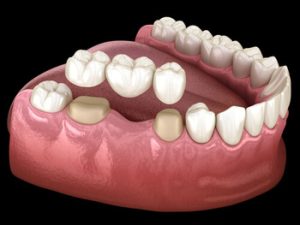Finding the right dentures is important, but the cost of dentures for pensioners can sometimes feel overwhelming. Many people wonder what affects the price and whether there are affordable choices available. Different factors play a role in how much dentures cost, and knowing these details can help in making the best decision. Some options might be more budget-friendly, while others may offer long-term value. But what should pensioners look for when planning for dentures? Learning about the cost of dentures for pensioners can make it easier to find a comfortable and reliable solution.
What Are Dentures?
Dentures help replace lost teeth, making it easier to eat and speak. Complete dentures are used when all teeth are missing, while partial dentures fill gaps when some natural teeth are still present. They are designed for comfort and a natural look, helping to restore both function and appearance.
What’s the Price Range for Dentures for Pensioners in Australia?

What Influences the Cost of Dentures for Pensioners and How Can You Save?
Finding the right dentures at an affordable price is important for many pensioners. Several factors influence the total cost, making it essential to explore what plays a role in pricing.
The Type of Dentures You Choose
Different styles of dentures come with varying costs, depending on how they are made and their intended use. Full dentures generally require more materials and adjustments compared to partial ones, leading to a price difference. Some denture options are designed for long-term use, while others serve as temporary solutions, which may also impact costs. The level of detail in crafting dentures, including their fit and how natural they look, contributes to the overall expense. Personal preference and comfort also determine the best type of dentures for each individual.
The Materials Used to Make Dentures
The cost of dentures changes based on the materials chosen for their construction. Acrylic is often the more affordable option, while stronger materials, such as porcelain, may come at a higher price. High-quality materials offer better durability and a more natural appearance, making them a popular choice for those who want a long-lasting solution. Flexible denture materials provide a comfortable fit but may add to the overall expense. The final selection depends on individual needs and how much one is willing to invest in quality and comfort.
The Complexity of the Fitting Process
Some dentures require more preparation before they can be placed properly. If extra dental treatments are needed, such as tooth extractions or gum care, these procedures add to the total cost. A more customised fit might involve additional steps, such as precise measurements and moulding, increasing the time and expense involved. Dentures that require careful adjustments to match the shape of the gums tend to be priced higher than standard options. The more complex the process, the greater the impact on overall pricing.
The Role of Health Cards and Coverage
For eligible pensioners, financial assistance may be available to help cover some of the costs. The Commonwealth Seniors Health Card and the Pensioner Concession Card offer certain benefits, depending on eligibility and location. These cards may provide access to lower costs for denture services through public programs. However, not all treatments or materials may be covered under these programs, making it necessary to check what assistance is available. In addition to these cards, private health insurance may help cover part of the expense, depending on the level of coverage. Understanding what benefits apply from both public programs and private health insurance can help pensioners make informed financial decisions.
Additional Costs Beyond the Dentures Themselves
Beyond the denture fitting, there are often extra expenses to consider. Regular adjustments may be needed to maintain comfort, and these follow-up visits can add to overall pricing. Relining or repairing dentures over time also brings additional costs, depending on the level of wear. Routine check-ups help ensure that dentures continue to fit well and function properly. Budgeting for these ongoing needs ensures pensioners are prepared for future care.
Understanding the key factors that influence denture pricing helps pensioners make well-informed choices. The type of dentures, materials used, and additional treatments all play a role in determining the overall expense. Financial assistance options, including government programs, may help reduce costs for those who qualify. Exploring different choices and speaking with a trusted provider can ensure the best balance of affordability and quality.
What Does Getting Dentures Involve from Start to Finish?
The First Visit: Examining the Mouth
The denture fitting process starts with a detailed check-up. The dentist looks at the gums and any remaining teeth to assess their condition. If extractions are needed, they will plan when the dentures can be fitted. Measurements and impressions of the mouth help create a model for the dentures. This step is important to ensure a snug and natural fit once the dentures are ready.
Creating a Model for a Better Fit
A mould of the gums is taken using a special material that captures every detail. This helps in making dentures that match the shape of the mouth. The dentist also checks how the upper and lower teeth meet when biting. If adjustments are needed, they can make changes before finalising the dentures. Getting this step right is essential for comfort and function.
Selecting the Right Look and Feel
Dentures should look natural and suit the person’s face. The patient and dentist work together to choose the best size, shape, and colour of the false teeth. The goal is to create a look that matches any remaining natural teeth. The choice of material also plays a role in comfort and durability. A well-matched denture makes smiling and speaking feel more natural.
Testing a Temporary Version
Before the final dentures are made, a temporary model is used for a trial fitting. This allows the dentist to check how well they fit inside the mouth. The patient can also see how they feel when speaking and chewing. If anything feels off, adjustments are made before moving to the final step. Making changes at this stage helps prevent discomfort later.
Finalising and Placing the Dentures
Once the trial version is approved, the final dentures are made using strong materials. The dentist carefully places them in the mouth and checks their fit. Small adjustments may be needed to make sure they feel right. The patient also receives instructions on cleaning and caring for the dentures. Learning how to eat and talk with them may take a little time, but proper guidance makes the transition easier.
Regular Check-Ups and Adjustments

A well-planned denture fitting process ensures a comfortable and natural feel. From the first impression to the final fitting, each step is designed to provide a secure fit. Proper care and regular visits to a dentist help maintain oral health and keep the dentures working well. Seeking professional help ensures a smooth process and long-lasting results.
How Can Dentures Transform Your Smile and Boost Confidence?
Helps with Chewing and Enjoying Meals
Eating certain foods can become a challenge when teeth are missing. Dentures allow for better chewing, making it easier to enjoy a wider range of meals. A proper fit ensures even pressure distribution, helping to avoid discomfort while eating. The ability to chew well also plays a role in digestion, as food is broken down properly before swallowing. Maintaining a balanced diet becomes more manageable when dentures restore function.
Prevents Teeth from Moving Out of Place
When gaps are left in the mouth, the nearby teeth may start shifting. This movement can cause misalignment, leading to uneven wear and bite problems. Wearing dentures helps keep everything in place by filling the empty spaces. They provide structure to ensure that the remaining teeth do not experience unnecessary stress. This added support protects the overall function of the mouth.
Brings Back a Natural-Looking Smile
Missing teeth can change the shape of the face over time. Without proper support, the cheeks and lips may appear sunken. Dentures help restore a fuller, more natural appearance by replacing lost teeth. They are designed to match the shape of the mouth, ensuring a comfortable and realistic look. Confidence often improves when a complete smile is restored.
Supports Clearer Speech
Pronouncing certain words can become difficult when teeth are missing. The tongue, lips, and teeth work together to form sounds, and gaps can impact this process. Wearing dentures provides the necessary support for proper speech. Over time, talking feels more natural as the mouth adjusts. This improvement makes conversations easier and more comfortable.
A Practical and Affordable Choice
For many, dentures provide a cost-effective way to replace missing teeth. Unlike dental implants, they do not require surgery, making them a more accessible option. While adjustments may be needed over time, they remain a reliable choice. A well-made set offers long-term function, provided they are cared for properly. Their affordability and ease of use make them a preferred solution for many people.
Promotes Better Oral Health

Dentures offer a way to restore function, improve appearance, and protect oral health. They make eating, speaking, and smiling easier while preventing further dental concerns. Choosing the right fit ensures comfort and lasting support. Seeking professional advice helps in selecting the best option for individual needs.
Get the Right Dentures Without the Stress
Understanding the cost of dentures for pensioners can make planning easier, helping you choose an option that fits your needs. Affordable choices are available, and selecting the right one ensures long-term comfort. Investing in proper dental care means better function and a natural look. Accessing essential dental services allows you to maintain your smile and enjoy daily activities without worry. Our team is ready to assist you in finding a suitable solution. Call us today at (02) 8806 0790 to schedule an appointment and learn more about your denture options.
References
https://medlineplus.gov/dentures.html
https://www.ncbi.nlm.nih.gov/books/NBK279192/

